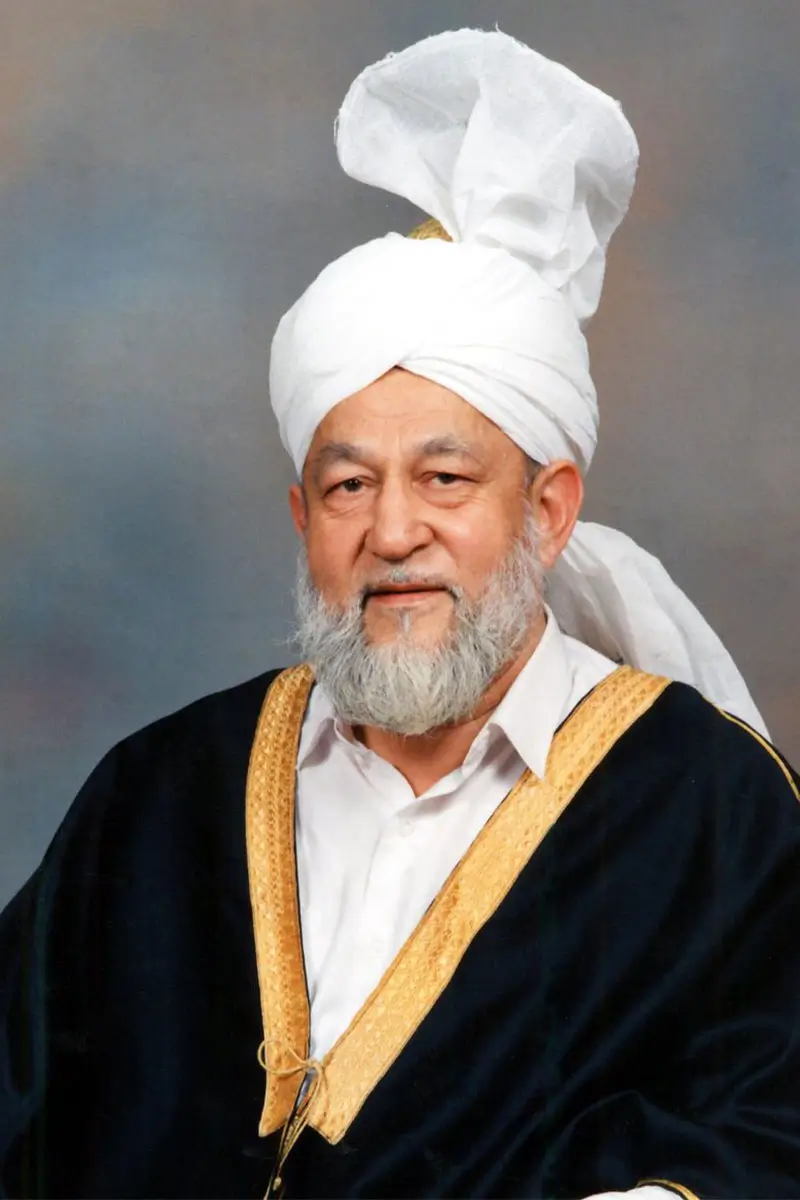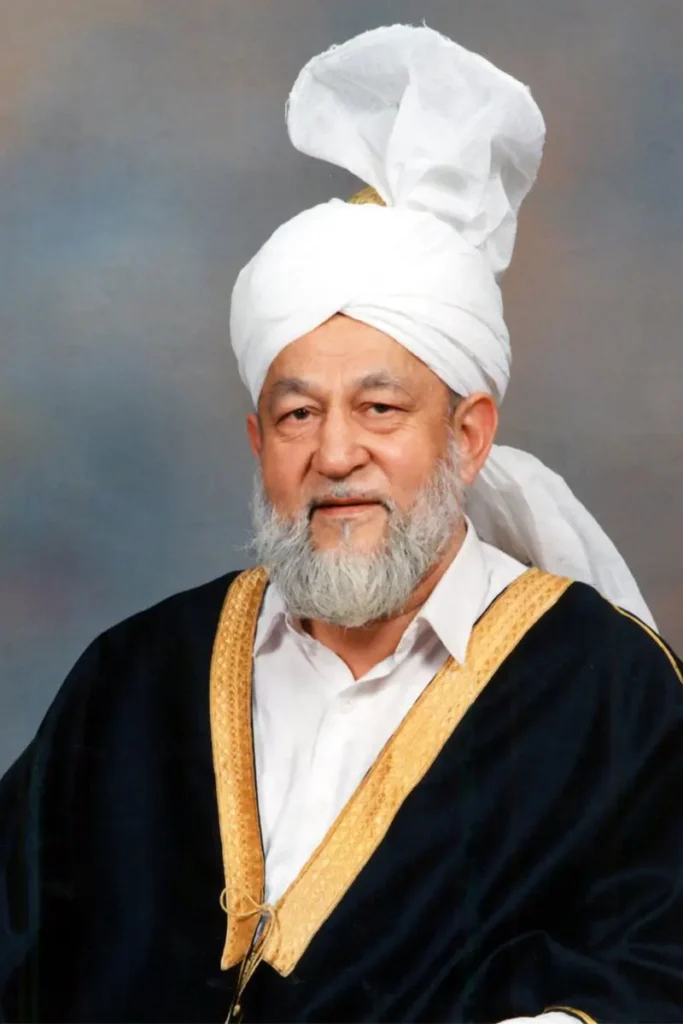Huzoor (rh): The fact is that he is applying لَوْ (If), either intentionally or inadvertently, to the wrong place. لَوْ is not applicable to “nabuwa.” لَوْ is applicable to the life of that boy only. So he is quite right. لَوْعَاشَ means that that boy has died, and it was not for him to live. So لَوْ does not open the possibility of his living. But it does not hit at the possibility of his becoming a prophet. That is a different thing altogether. The full tradition is: لَوْعَاشَ لَكَانَ صِدِّيقًا نَبِيًّا (If he had lived, he would have been a Siddiq and a Prophet).
Huzoor (rh): لَكَانَ صِدِّيقًا نَبِيًّا is not hit by لَوْ. That is a permanent statement. لَوْعَاشَ means “had he lived.” So translate it exactly in English, and then you will understand better, and then you can explain to him. Had he lived, he would most certainly have become a prophet. This is the translation. So had he lived tells us that he was not to live—that is لَوْ. But he would have most certainly become a prophet—that is not affected by that “had he lived.”








